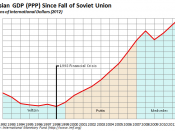Introduction
Intercultural competences - "What is intercultural competence?"
Intercultural competence is viewed in a globalized acting world, as a key qualification. Since the 1960s research has been increased on this topicin the U.S.After a considerable delay this scientific research field reachedas well the European scientific and business community.
Nevertheless, science and society have still not achieved a clear definition. The concept of intercultural competence is subject to a notorious blur, which results from the subjective view of each individual performer (as a function of its cultural association). (See ESSEN 2007, 9) An attempt to describe intercultural competence is based on the skills, "based on certain attitudes and beliefs, and the particular action and reflection skills to interact effectively and appropriately in intercultural situations." (See BERTELSMANN 2006, 5)
There exists also the attempt to define the term legalistic but as well those shows how difficult a clear and unambiguous definition is.
As the participation and integration law of Berlin defines intercultural competence as "one based on knowledge of cultural rules, norms, values, attitudes and symbols form of social and professional competence." (See PARTINTG ç4 (3)) This would be again a reflection of the necessary soft skills of social competence in order to achieve a clear definition. Another approach shows the law of the State of North Rhine-Westphalia, which seeks primarily to the issue of anti-discrimination. (See TEILHABE- UND INTEGRATIONSGESETZ ç4 (2)) Both, the legal and as well as the scientific approach to define leave space in interpreting how to communicate successfully with other cultures.
Intercultural competence is made up of different abilities. As already mentioned, these are mainly soft skills. Sorted by decreasing relevance "are openness, and empathy [...] as the most decisive key skills. In addition to the adaptability and flexibility of the [...], as well as communication skills, self-confidence...


